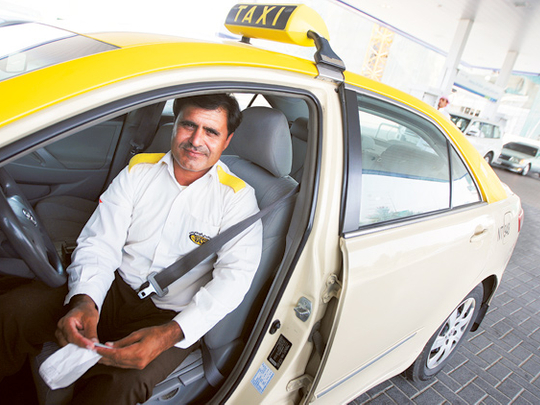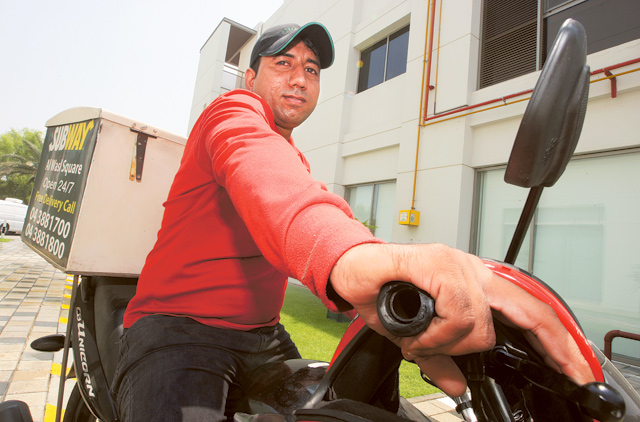
Abu Dhabi/Dubai: As thousands of revellers celebrated the first day of Eid Al Fitr across the country on Monday, it was business as usual for many essential staff.
Whenever there are official holidays, some people, such as police and Civil Defence officials, paramedics and doctors, salespeople, hoteliers, and people in the service sector, often don’t get the luxury of a long break like the rest. Yet those Gulf News spoke to were still all smiles as they heeded the call of duty this Eid.
Delivery boy Mohammad Zahid started his day early for the pre-dawn Eid prayers. He had to rush to work after then for his duty started early at a 24-hour burger joint.
“Not working during Eid is not an option because there’s no one else who can work in this shift,” Zahid, 27, from Pakistan, told Gulf News.
“I can’t wait to finish my duty tonight and go to Ajman to celebrate Eid with my brother. We’ll go to the mall to have a simple celebration.”
The same was true for Pakistani taxi driver Sahib Khan.
“For taxi drivers, we don’t get to go on a vacation during Eid holidays because it’s usually one of the busiest times of the year. We need to be here for the passengers and tourists. We need to work,” Sahib Khan, 42, who works every Eid, said.
Khan also started his day with morning pre-dawn prayers at the mosque before heading to work. After his shift started, Khan had already had 15 passengers in just a few hours.
“I called my wife and five children in Pakistan this morning to greet them. But today there will be no celebration for me because I’ll be very tired after my 12-hour shift. So I’ll spend it in my room to rest to prepare for work for the second day of Eid.”
For Bangladeshi expatriate Mohammad Ali leaving his workplace on Eid was not possible. The building watchman said that he invited friends over instead.
“I have to stay here since there’s no one to take over the shift for me. Eid or no Eid, I have to be on duty,” Ali, 32, who’s celebrating his second Eid in the country, said.
“I don’t have that many friends either, just two. So we’re all celebrating Eid Al Fitr together,” he said, adding he cooked a traditional Bangladeshi meal for the three of them.
Nur Mohammad, an Indian hotel driver, said work during the first day of Eid did not feel like work at all since the hotel management gave all Muslim staff a mini Eid celebration.
“They prepared really nice food for us so we can celebrate here while we’re on duty,” Mohammad said. “The hotel is very busy as usual; we can’t take an off.”
Zahid U., a taxi driver in the capital, said: “I will be working on Eid, I don’t have a holiday for this period. It is tough, because you want to be with your family, to see them, and to enjoy this time with them.”
The public sector was given nine consecutive days off this Eid Al Fitr while the private sector was given two days.
Those required to work during public holidays must be given compensatory days off according to the number of days he or she worked during the holiday period, according to Article 81 of the UAE Labour Law. If he or she is not given leave in lieu, his employer should pay him 150 per cent of his basic wage according to the days he or she has worked.
- with additional inputs from Sami Zaatari, a trainee at Gulf News.













